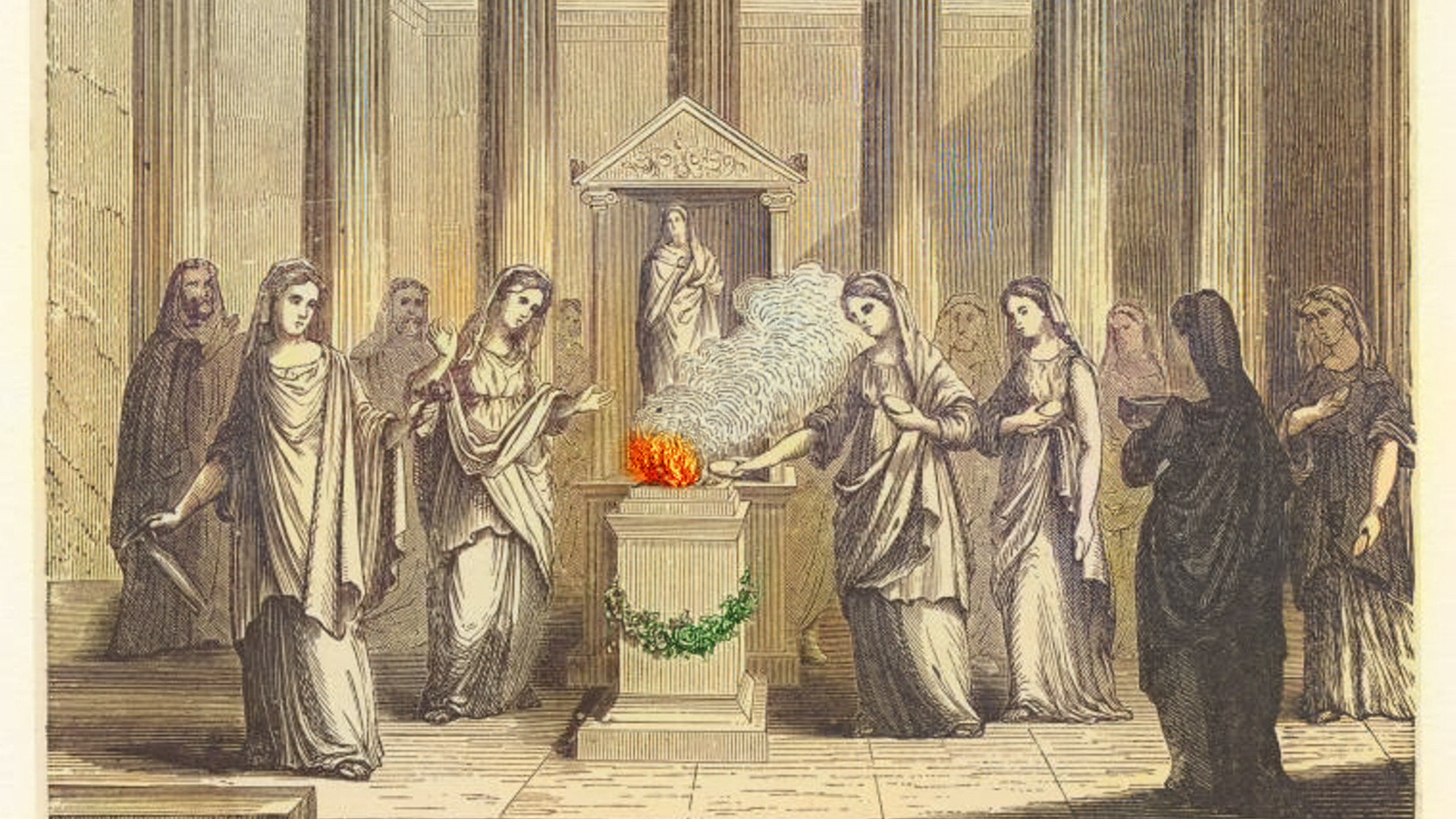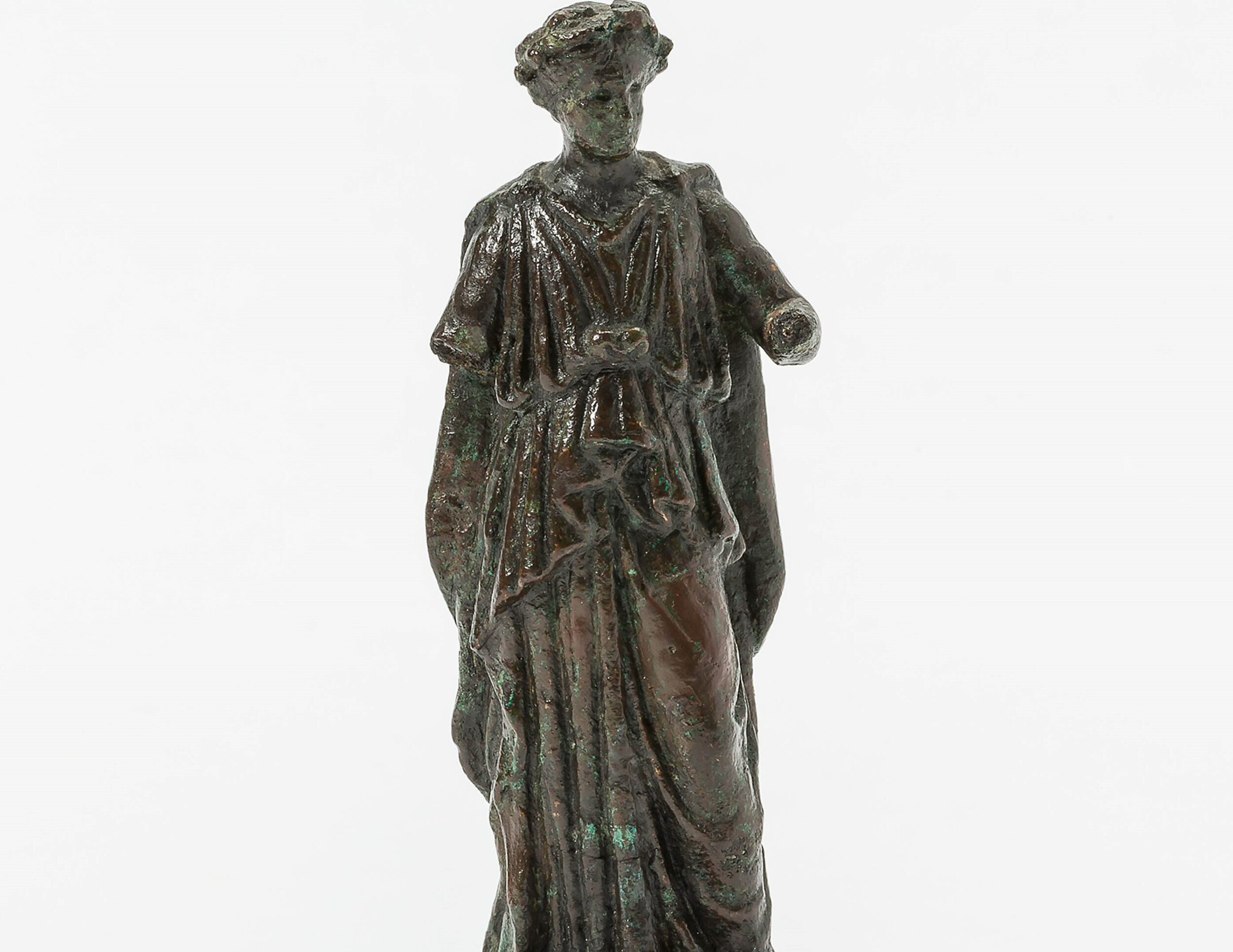
DEBRA’S BLOG
Empire of Iron - Medallions and a Mystery
This article is for readers of my novel Empire of Iron, which is the third and last book in The Vesta Shadows trilogy, a book series that follows the life of the Vestal Virgin Pomponia Occia through the fall of the Republic and the rise of the Empire, and beyond.
To Be Wolves - Portraits
This article is for readers of my novel To Be Wolves, which is book two in The Vesta Shadows Trilogy, a series that follows the life of the Vestal Pomponia Occia through the fall of the Republic and the rise of the Roman Empire under Augustus.
Brides of Rome - The Vestals from Republic to Empire
This article is for readers of my novel Brides of Rome, which is book one in The Vesta Shadows Trilogy. This series spans the later years of the Republic and the early years of the Empire, and follows the life of the Vestal Virgin Pomponia Occia, who is based on the real-life priestess Occia. Since many of the characters and events you’ll read about in my novels are depicted on ancient Roman coins, I like to show readers relevant coins from my collection so they can see the real impressions of the people, legends and events that I’ve dramatized.
Amata - Legend and Legacy in Ancient Rome
This article is for readers of my novel Amata, which is the third and final book in The First Vestals of Rome trilogy, a series set during the founding and earliest years of Rome. Many of the characters and legends that you’ll read about in my books are found on ancient Roman coinage, so I’ve included some relevant coins from my collection for readers to take a peek at.
Tarpeia and the Early Days of Rome
This article is for readers of my novel Tarpeia, which is the second book in The First Vestals of Rome trilogy, a series about the founding Vestal priestesses of ancient Rome. Many of the characters and legends that you’ll read about in my books are depicted on ancient Roman coinage, so I thought readers would be interested in seeing these
Rhea Silvia and the Founding of Rome
This article is for readers of my novel Rhea Silvia which is the first book in The First Vestals of Rome trilogy. This series covers the legendary founding and the first years of the kingdom of Rome, and focuses on the Vestal priestesses that were prominent during this time period - and that starts with Rhea Silvia, the mother of Romulus and Remus.
The Simpulum - The Ritual Ladle in Your Kitchen Drawer
The simpulum is an ancient ritual ladle that was used for libations and during sacrifices. It was a symbol of the Roman priesthood, and you probably have something very similar banging around in a kitchen drawer.
The Temple of Vesta in Tivoli
The Temple of Vesta in the Roman Forum tends to get most of the attention - and considering the centuries of history that happened within its view, why not? - but the Temple of Vesta in Tivoli deserves our love too.
A Rare Look ‘Inside’ the Ruins of Vesta’s Temple
If you’ve ever had the good fortune to visit the ruins of the Temple of Vesta in the Roman Forum, you’ll know that you can get fairly close to this beauty; however, there is a barrier that prevents you from getting too close. You can’t really see, and you certainly can’t enter, the circular area that was inside the temple – that is, the area where the eternal fire burned for some thousand years.
The Vestals Get a Modern Makeover
The most authentic images we have of the Vestal Virgins are of course from antiquity – these are statues, relief carvings and images minted on coins.
As beautiful and informative as these are, it is wonderful to see more modern treatments.
Vestal Virgins: Feminism & Burial Alive
Despite the richness of the Vesta tradition, many people who think “Vestal Virgin” still think of one thing: the fact that ancient Vestals who broke their vow of chaste service to the goddess were buried alive. Let’s be honest. Who can blame people for going there? It’s a pretty dramatic image: a young woman being thrown into a shallow grave and trying to claw her way out while dirt is being piled on top of her.
Vesta Rises from the Rubble…
I thought those who follow this site would appreciate this post and this remarkable black and white photograph.
Vesta: An Ancient Prayer & a Lararium (on Film)
Here is a prayer to Vesta, adapted from an ancient Homeric hymn:
Vesta, as a Symbol of the Soul
Fire has long been a holy symbol, a representation of the spirit and even the divine. Fire worship is one of the earliest forms of religion known to humankind – one can almost imagine our ancient ancestors marveling at the sight of a red ember crackling out of a fire and flying up and away into the black night sky. It just sparks a sense of reverence, doesn’t it?
Tomb of the Vestal Cossinia
Here’s an amazing item (from my collection) that I’d like to share with you. It’s the press photo taken shortly after the excavation of the tomb of the Vestal Cossinia in Tivoli, Italy, around 1930. This esteemed and beloved priestess served the goddess for sixty-six years.
Cleopatra and the Vestals: A 2000 Year Old Smear Campaign
From books to movies, television shows to video games, it seems that Cleopatra just can’t catch a break. Popular culture still insists on depicting her as the so-called “Whore of the Nile,” thus perpetuating the smear campaign started by Octavian after he defeated her (and Marc Antony) some two millennia ago.




















